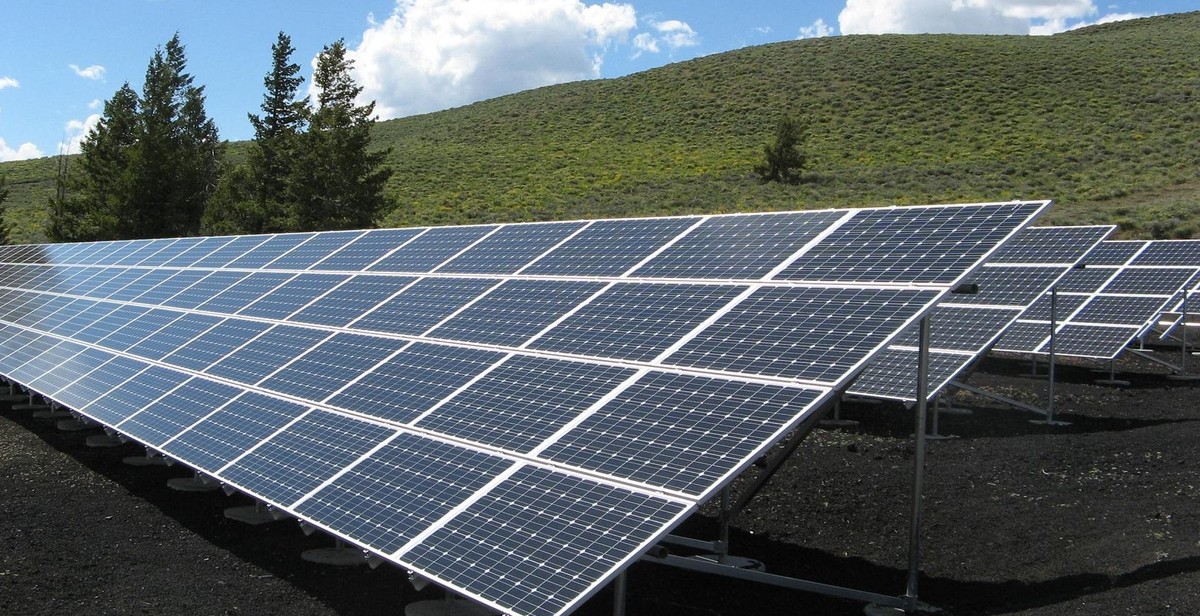The benefits of using renewable energy for heating and cooling
Renewable energy sources are becoming increasingly popular as people seek to reduce their carbon footprint and protect the environment. One of the areas where renewable energy can be particularly effective is in heating and cooling systems for homes and businesses.
Traditional heating and cooling systems rely on fossil fuels such as oil and gas, which contribute to greenhouse gas emissions and climate change. In contrast, renewable energy sources such as solar, geothermal, and biomass can provide sustainable and efficient heating and cooling solutions.
Advantages of renewable energy for heating and cooling
- Reduced carbon footprint: Renewable energy sources emit little to no greenhouse gases, helping to reduce carbon emissions and combat climate change.
- Lower energy costs: Renewable energy can be more cost-effective in the long run as it is not subject to fluctuations in fossil fuel prices.
- Greater energy independence: By relying on renewable energy sources, homeowners and businesses can reduce their dependence on traditional energy sources and reduce their vulnerability to price fluctuations and supply disruptions.
- Improved air quality: Traditional heating and cooling systems can contribute to air pollution, causing respiratory problems and other health issues. Renewable energy sources produce cleaner air and have a positive impact on public health.
In this article, we will explore the benefits of using renewable energy for heating and cooling in more detail, including the different types of renewable energy available and how they can be used to create sustainable and efficient heating and cooling systems.

What is Renewable Energy?
Renewable energy is energy that is derived from natural resources that are replenished over time. These resources are considered renewable because they are not finite or exhaustible like fossil fuels. The most common types of renewable energy sources include:
- Solar Energy: This type of energy is derived from the sun’s rays and can be converted into electricity using solar panels.
- Wind Energy: Wind turbines are used to convert the kinetic energy of the wind into electricity.
- Hydro Energy: This type of energy is generated from the movement of water, such as from waterfalls or the tide.
- Biomass Energy: Biomass is organic matter that is used as fuel, such as wood, crop waste, or animal manure.
- Geothermal Energy: This energy is generated from the heat of the earth’s core.
Renewable energy has several advantages over traditional fossil fuels, including:
- Reduced greenhouse gas emissions: Renewable energy sources emit significantly less greenhouse gases than fossil fuels, which contribute to climate change.
- Lower operating costs: Once the initial investment is made, renewable energy sources have lower operating costs than fossil fuels.
- Increased energy security: Renewable energy sources are not subject to the same supply constraints as fossil fuels, which can be affected by geopolitical tensions and price fluctuations.
- Job creation: The renewable energy industry has the potential to create more jobs than the fossil fuel industry as it grows and develops.
Conclusion:
Renewable energy is becoming an increasingly important source of energy as society seeks to reduce its reliance on fossil fuels. By using renewable energy sources for heating and cooling, we can reduce our carbon footprint and help mitigate the effects of climate change.

Heating with Renewable Energy
Renewable energy sources such as solar and geothermal energy are becoming increasingly popular for heating homes and buildings. These sources are not only environmentally friendly, but they can also help reduce energy bills and provide reliable heating options.
Solar Heating
Solar heating is the process of using energy from the sun to heat a home or building. This can be done through the use of solar panels, which collect energy from the sun and convert it into heat. The heat is then used to warm water or air that is circulated throughout the building. This type of heating can be used in both residential and commercial buildings and is especially effective in areas with a lot of sunshine.
One of the major benefits of solar heating is its cost-effectiveness. Once the initial investment in solar panels has been made, the energy from the sun is free and can help reduce energy bills significantly. Additionally, solar heating systems require very little maintenance and have a long lifespan, making them a reliable and sustainable heating option.
Geothermal Heating
Geothermal heating is a system that uses the natural heat from the earth to warm a home or building. This is done through the use of a geothermal heat pump, which harnesses the heat from the ground and transfers it into the building. The heat pump can also be used to cool the building in the summer by transferring heat from the building into the ground.
Geothermal heating is a highly efficient and reliable heating option, as the temperature of the earth remains constant throughout the year. This means that the system can provide consistent heating and cooling without using a lot of energy. Additionally, geothermal systems have a long lifespan and require very little maintenance, making them a cost-effective and sustainable heating option.
- Solar heating and geothermal heating are both reliable and sustainable heating options.
- Both systems are cost-effective and can help reduce energy bills.
- Solar heating is especially effective in areas with a lot of sunshine.
- Geothermal heating is highly efficient and reliable, as the temperature of the earth remains constant.

Benefits of Renewable Energy for Heating
Renewable energy sources have been gaining traction globally as an alternative to traditional fossil fuels. Renewable energy sources are derived from natural and renewable resources such as the sun, wind, and water, which makes them an attractive option for heating and cooling systems. Here are some benefits of using renewable energy for heating:
Cost Savings
Renewable energy sources for heating offer significant cost savings for homeowners. While the initial cost of installation may be higher compared to traditional heating systems, the long-term savings are significant. Renewable energy systems like geothermal heating systems have a longer lifespan, require less maintenance, and have lower operating costs compared to traditional heating systems.
Environmental Benefits
Renewable energy sources for heating are environmentally friendly and sustainable. They produce little to no greenhouse gases, which helps to reduce the carbon footprint of homes and buildings. Renewable energy systems like solar heating systems, geothermal heating systems, and biomass heating systems use natural resources that are readily available and do not contribute to air pollution.
Energy Independence
Renewable energy sources for heating offer energy independence as they rely on natural resources that are abundant and readily available. Unlike traditional heating systems that rely on fossil fuels, renewable energy systems like solar heating systems and geothermal heating systems offer a sustainable and reliable source of energy. This reduces dependence on foreign oil and other non-renewable resources, which is critical for energy security.
Overall, renewable energy sources for heating offer significant benefits in terms of cost savings, environmental benefits, and energy independence. As more homeowners and businesses adopt renewable energy sources, we can reduce our dependence on non-renewable resources and create a more sustainable future.

Cooling with Renewable Energy
Renewable energy sources can also be used for cooling. Two popular methods for cooling with renewable energy are geothermal cooling and solar cooling.
Geothermal Cooling
Geothermal cooling uses the constant temperature of the earth to cool a building. A geothermal cooling system consists of a loop of pipes filled with a water and antifreeze solution buried underground. The solution absorbs heat from the building, which is then transferred to the earth. The cool solution is then pumped back into the building to cool it down. Geothermal cooling systems are highly efficient and can save up to 70% on cooling costs compared to traditional air conditioning systems.
Solar Cooling
Solar cooling uses the power of the sun to cool a building. A solar cooling system consists of a solar collector that absorbs heat from the sun and transfers it to a cooling system. The cooling system then cools the building using either an absorption or adsorption process. Absorption systems use a heat source, such as natural gas or propane, to drive the cooling process. Adsorption systems use a solid material, such as silica gel, to drive the cooling process. Solar cooling systems are highly efficient and can save up to 40% on cooling costs compared to traditional air conditioning systems.
Conclusion
Using renewable energy sources for cooling can not only save money on energy costs, but also reduce greenhouse gas emissions. Geothermal cooling and solar cooling are two effective methods for cooling with renewable energy.

Benefits of Renewable Energy for Cooling
Renewable energy sources are becoming increasingly popular for cooling systems due to their numerous advantages. Below are some of the benefits of using renewable energy for cooling:
Cost Savings
Renewable energy sources such as solar and geothermal energy are free and abundant. This means that once the initial installation cost is covered, the cost of energy is significantly reduced. In addition, renewable energy sources require less maintenance compared to traditional cooling systems, which translates to further cost savings.
Environmental Benefits
Renewable energy sources produce zero emissions and have a minimal impact on the environment. This is because they do not rely on fossil fuels that emit greenhouse gases and contribute to climate change. By using renewable energy for cooling, we can significantly reduce our carbon footprint and contribute to a cleaner and healthier environment.
Energy Independence
Renewable energy sources provide a reliable and independent source of energy. This is particularly important in areas where access to electricity is limited or expensive. By using renewable energy for cooling, we can reduce our dependence on fossil fuels and contribute to a more sustainable future.
Overall, the benefits of using renewable energy for cooling are numerous and significant. From cost savings to environmental benefits and energy independence, renewable energy sources are a smart and sustainable choice for cooling systems.

Conclusion
In conclusion, the use of renewable energy for heating and cooling has numerous benefits. Not only does it help reduce carbon emissions and combat climate change, but it also promotes energy independence, creates jobs, and saves money in the long run.
Environmental Benefits
Renewable energy sources such as solar, wind, and geothermal do not produce harmful emissions, unlike fossil fuels. By using these sources for heating and cooling, we can significantly reduce our carbon footprint and help mitigate the effects of climate change.
Economic Benefits
Switching to renewable energy can also result in significant cost savings in the long run. While the upfront costs may be higher, the operational costs are much lower compared to traditional heating and cooling systems. Additionally, the use of renewable energy can create jobs and promote economic growth in the renewable energy sector.
Energy Independence
By relying on renewable energy sources, we can reduce our dependence on foreign oil and other non-renewable energy sources. This promotes energy independence and strengthens our national security.
Final Thoughts
Overall, the benefits of using renewable energy for heating and cooling are clear. It is a sustainable and cost-effective solution that can help us move towards a cleaner and more secure energy future.
| Key Takeaways: |
| – Renewable energy sources for heating and cooling can significantly reduce carbon emissions and combat climate change. |
| – Switching to renewable energy can result in cost savings and promote economic growth in the renewable energy sector. |
| – Relying on renewable energy sources promotes energy independence and strengthens national security. |
